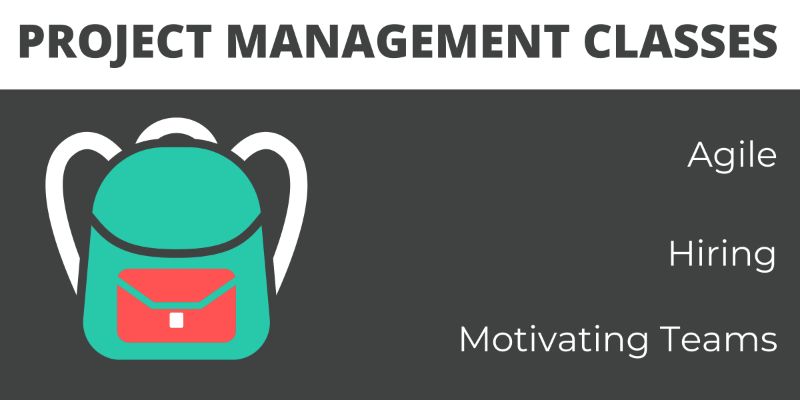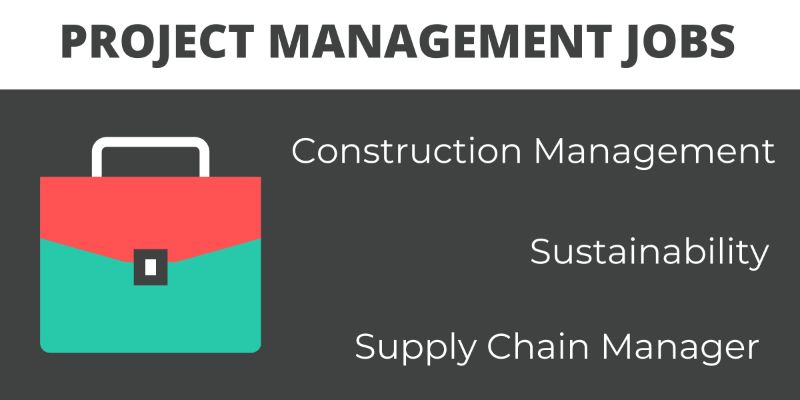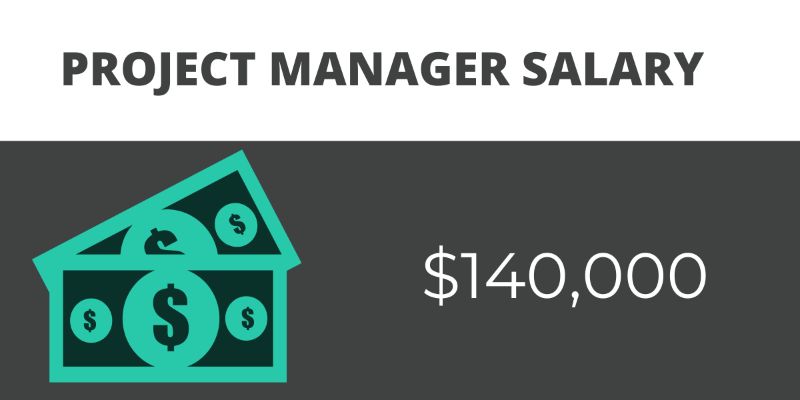Project managers are jugglers. They give every business endeavor its initial launch, watch its direction and velocity closely, and are there to catch it if it goes off track. They keep multiple projects in motion without taking their eyes off the ball- or dropping it! If you are able to juggle tasks and to attend closely to both the details and the big picture, you may be cut out for a career in project management.

All fields have projects, and all fields need project managers. Whether your business is a nonprofit community service provider or a multinational media corporation, you’ll regularly have new undertakings like structural changes to navigate and new services to launch. A project manager oversees the planning, development, execution, and analysis of projects. This expert oversight allows stakeholders and contributors to focus on their own pieces of the project. A project’s efficiency and its odds of success increase significantly with a capable project manager in the driver’s seat.
To say that project managers have a lot of responsibility is an understatement. It’s the job of a project manager to oversee a project’s goals, team, budget, and timeline. They also need to be ready to adjust to changing circumstances and troubleshoot as needed. Many project managers handle high-stakes undertakings, with big teams, tight deadlines, international stakeholders, and large investments on the line. That’s why these professionals need more than the right temperament- they need a degree in project management.
To get a job in project management, you’ll need a degree in general management plus project managing experience, or a degree in project management. You’ll also need at least one of the several certifications offered in project management. A project management degree can open the door to a position of leadership in an almost infinite variety of sectors. It can also lead to an excellent high salary. Demand for skilled project managers is strong and has been steadily growing, which means excellent job prospects for dedicated and talented individuals with project management degrees.
To get to that point, you’ll need to understand the field of project management, the different degrees available, and the different certifications you can pursue. Our guide to project management degrees will introduce you to the basics of what it takes to be a project manager and how to get the education and training you need for a project management career.
Jump To:
- What is a Project?
- What is Project Management?
- What Do Project Managers Do?
- What Degree do I Need for Project Management?
- What Classes Will I take for a Degree in Medical Social Work?
- What Project Management Credentials Will I Need?
- What Jobs Can I Get with a Degree in Project Management?
- What is the Job Market for Project Management?
What is a Project?
We all know what a project is. But what is a project in a business context? After all, most people in a company are executing and engaging with specific endeavors every day. And these usually require some degree of management and oversight. What makes a business project different from a routine task?
The Project Management Institute (PMI), defines a project as “a temporary undertaking to create a unique product.”
- A project is unique since it is different from day-to-day operations. A project has an objective that’s outside the usual routine.
- A project results in a product as its outcome. This is the result of the project’s goal. Also called the “deliverables,” the product of a project can be a structural change, marketing campaign, product launch, or event.
In routine operations, employees of an organization usually function within their departments. But in a project, people from different groups have a role to play in the work and the outcome. These “stakeholders” usually include staff from different departments, external vendors, and clients. Pulling together these different stakeholders and keeping them all on the same page is part of the job of a project manager.
What is Project Management?
Project management is the process of planning and supervising a project from beginning to end. The process consists of initiating, planning, executing, controlling, and closing the team’s work related to the project. The Project Management Institute (PMI), defines project management as the “application of knowledge, skills, tools, and techniques to project activities to meet the project requirements.” In other words, it is the application of project management strategies to guide the actions of stakeholders toward’s the project’s goal.

There are several different approaches to project management, known as methodologies. Each of these emphasizes a different aspect of project management. Some methodologies aim mostly to minimize risk, others to maximize efficiency. Still others are best when innovation is necessary. The most widely-used approaches to project management are:
- Waterfall Project Management
- Critical Chain Project Management (CCPM)
- Critical Path Project Management
- Lean Project Management
- Six Sigma Project Management
- Agile Project Management
- Scrum Project Management
- Kanban Project Management
- PRINCE2 Project Management
The right approach will depend on the industry, project goals, resources, and other factors. Project managers have a general knowledge of most methodologies, but usually have expertise in one or two that best fit their industry. For instance, PRINCE2 is usually used for government projects, while Waterfall is a classic construction project management methodology.
What Do Project Managers Do?
Simply put, project managers manage projects through their various phases. The methodologies above set forth different steps to completing projects, and these can vary. In some types of projects, the goal is to create several different iterations of a solution and try them out until the best one is found. In some projects, building a solid foundation before progressing to the next step makes the most sense. But, overall, project management follows five defined phases, as described by the Project Management Institute.
- Initiating Before beginning any active tasks, the project manager must name the project, define its goals, and rope in the various stakeholders.
- Planning Then overall plan for the project’s budget, timetable, scope, acceptable risk, and resources must now be decided and documented by the project manager. Official documents of the plan can include timelines, charts, milestones, and communication channels.
- Executing The actual work of the project unfolds during execution. The team follows the procedures, task assignments, and tracking systems that the project manager has created. They actively communicate to solve problems and share progress.
- Monitoring/Controlling The project manager measures, assesses, and evaluates the project’s progress relative to the initial plan. Changes are made to budgets, assignments, etc. to keep the project on track.
- Closing The project is complete and the deliverables are turned over. The project manager evaluates and reports outcomes and provides feedback to the stakeholders.

Each of these phases involves multiple people, resources, and limitations. It’s a lot to keep balanced, that this is further complicated when a project manager has more than one project in progress at a given time (which most do!). It is the project manager’s duty to “keep the trains running on time,” and this constant monitoring and troubleshooting occupies most of their professional bandwidth.
In terms of professional tasks, administration and communication comprise most of a project manager’s day to day work. You’ll need to have a knack for logistics you want to pursue a project management degree and career. Project managers methodically track budgets, milestones, deadlines, reports, contracts, invoices, and updates. They must be masters in creating and analyzing spreadsheets and charts.
Project managers must also be able to translate a lot of this technical information into actionable plain English for stakeholders. They need to keep everyone on the team in the loop without drowning them in updates and overwhelming them with details. Project managers also use communication to build relationships with and between team members and create a culture of project engagement. This aspect of the job is known as behavior-based project management, and it stresses building a project team that’s engaged, motivated, and productive. Communication is a big part of project management; without it, project management is little more than bureaucracy.

Project managers also act as fixers, resolving issues as they arise, and preventing small problems from snowballing. Project managers may course correct for their project by coaching underperforming team members, adjusting milestones to accommodate a change in deadline, resolving priority conflicts between stakeholders, or cutting expenses to stay within the project’s budget.
What Degree Do I Need for Project Management?
Depending on your field, it may be possible to become a project manager without a project management degree, or any higher education at all. In the field of construction, for instance, many people who manage projects gained their role through many years of industry experience and proven leadership. But most businesses prefer job candidates with at least a bachelor’s degree in project management or business, plus one or more project management certifications.
A bachelor’s degree for this job can take the form of an undergraduate degree in project management, or a bachelor’s degree in business with an emphasis in Project Management. There are also master’s degrees in project management. These two-year graduate programs are geared towards current project managers looking to advance their careers and to business professionals looking to change career tracks.
An alternative to a master’s degree in project management is an MBA in project management. This three-year option is more popular because of its wider business applications; an MBA is a prestigious credential across a range of business positions. If you’re set on a career in the business sector, but can see yourself in roles outside of project management, an MBA in project management is a great choice.
What Classes Will I Take for a Degree in Project Management?
The classes you’ll take for a project management degree will depend on your degree level and the school you’re attending. Some of the courses you’ll typically run across in a project management degree curriculum include titles such as:
- Foundations of Project Management
- Introduction to Operations Management
- Leading International Projects
- Organizational and Project Management Ethics
- Scheduling, Budgeting and Operations Management
- Enterprise and Project Risk Management
- Organizational Behavior and Stakeholder Management
- Analytical Methods for Planning and Control
Whatever project management degree you pursue, the curriculum should be closely aligned with the Project Management Body of Knowledge (PMBOK) Guide, which is a collection of best practices set forth by the Project Management Institute. At the graduate level, the curriculum for a project management degree usually prepares students to take the examination for the Project Management Professional (PMP) certification

Most project management degrees or business degrees with an emphasis on project management offer some for on hands-on learning. This can take the form of an internship or practicum at an organization under the supervision of a professional project manager. Experiential learning allows project management degree seekers to learn hands-on skills in a real-world setting. This type of professional workplace experience is important for graduates who want to turn their project management degree into a project management job.
What Project Management Credentials Will I Need?
There are several widely-recognized and prestigious project management certifications. Employers usually seek project managers who have a certification as well as a degree. A certification can also help you earn a higher salary as a project manager. According to the Project Management Salary Survey convicted by the PMI, project managers with a PMP certification earn an average of $20,165 more than those without one.
While it’s more common to enter the field of project management with both a degree and certification, it is possible to start a project management career with a certification alone. In fact, much of the curriculum for project management degrees is aligned with the industry-standard certifications.

The requirements to earn a project management certification will depend on the certification type and level. In general, to earn a project management certification, you’ll need to apply, pay a fee, and pass a rigorous exam. For many certifications, you’ll also need to complete a particular training course or complete a certain number of documented hours of professional experience. The training requirements are generally higher for those without an existing project management degree.
The Project Management Professional (PMP) certification, mentioned above, is the most popular certification in the field. It is administered by the Project Management Institute (PMI), and covers material contained in the Project Management Body of Knowledge (PMBOK).
The PMP is a general project management credential- it requires competency in a broad range of project management methodologies, strategies, and best practices. Most other project management credentials relate to a specific methodology. You can earn certification in Scrum, Prince2, or Kanban. Most certifications for project management are also offered at different levels. For example, you can become certified as a Scrum Master, an Advanced Certified Scrum Master, or a Certified Scrum Professional.
Once you’ve earned a project management degree, you’re a degree holder for life; project management certifications work a little differently. Once you’ve gained certification, you’ll need to maintain your credential. The requirements to keep your credential current will vary based on the one you hold, but you’ll generally need to pay a fee every 2-3 years and/or earn a certain number of professional development credits.
What Jobs Can I Get with a Degree in Project Management?
It’s no surprise that a degree in project management will usually get you a job as a project manager. But as a project manager, your exact title will be determined largely by your industry and y0ur level of project management degree. The Project Management Institute reports that about half of project managers hold a bachelor’s degree. With an undergraduate degree, you can expect to land an entry-level job, such as Junior Project Manager.

With a master’s or MBA in project management, our with enough job expereince, you’ll be eligible for more senior project management positions. These include:
- Senior Project Manager
- Program Manager
- Project Portfolio Manager
- Director of Project Management Office
- Project Management Consultant
Project managers can work in very different industries and departments as well. Many lead projects in their organization’s department of research and development, IT, or engineering. Some of the highest-paid project management areas, according to the PMI, include supply chain management and logistics.
What is the Job Market for Project Management?
Project managers are in high demand. Businesses which did not hire project managers in the past are becoming increasingly aware of the cost of preventable project failure. A broad study of projects by PricewaterhouseCooper found that just 2.5% of businesses surveyed had successfully completed 100% of their projects. And another project study published in Harvard Business Review found that the average project runs over budget by 27%, and that one in six projects has an overrun of 200%. More and more organizations are looking for project managers to help curb these failures and inefficiencies. A report from the Economist states that 90% of executives now consider specialized project management “important” or “critical” for business success.
But there is a large and growing gap between the demand for qualified project managers and the number of available professionals who hold a project management degree and qualifications. Many current project managers are nearing retirement age, and demand is especially high in countries with rapidly growing economies. The Project Management Institute estimates that by 2020 there will be a global shortage of project managers, which will total 1.57 million open project management jobs.

The high demand for project managers means great job prospects and excellent salaries. According to a 2019 survey by the Project Management institiutethe average salary for a project manager is $116,000 across all industries. The majority of salaries fall in the range of $93,000 to $140,000.
Salaries tend to increase with years of experience, advanced certifications, and the size of the team being managed. Certain roles within project management also command =higher salaries. For instance, program managers earn an average salary of $127,517, and portfolio managers earn an average salary of $140,780.
Further Reading
- 10 Fastest Master’s in Project Management for 2020
- 10 Most Affordable Master’s in Project Management for 2020
- 15 Best Online Master’s in Project Management for 2020
- What Can I Do with a Master’s in Project Management?
- What Can I Do with a Bachelor’s Degree in Business?
- 10 Best Online Bachelors in Management Degree Programs
- What Can I Do with a Business Analytics Bachelor’s Degree?
- What Can I Do with a Supply Chain Management Degree?
- 10 Best Master’s in Supply Chain Management Degree Programs
- Career Outlook For MBA’s
- The 50 Best Business Schools in North America
- How Much Do Business Majors Make?
- The Top 10 Online Business Management Degree Programs
Carrie Morris
Author
Warren Dahl
Editor-in-Chief
